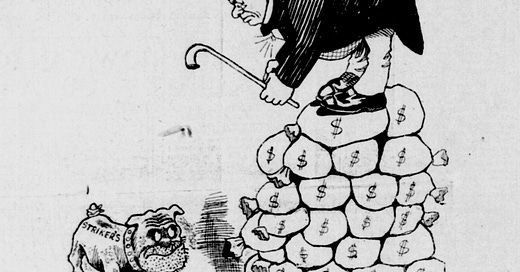Hello, fellow bugbears! I hope your three-day weekend is off to a great start, or, if you have to work this weekend, that all goes well for you.
Because it is a holiday …
Keep reading with a 7-day free trial
Subscribe to The Bugbear Dispatch to keep reading this post and get 7 days of free access to the full post archives.



